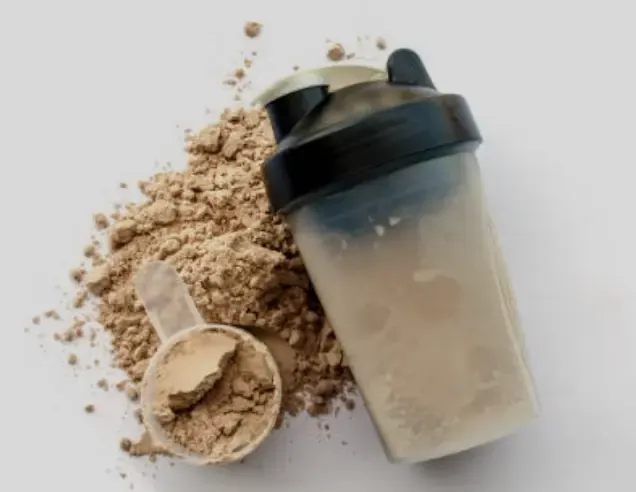Introduction
Whey protein has gained significant popularity in recent years as a dietary supplement for muscle growth and recovery. However, there is a lot of confusion and conflicting information surrounding its effects on insulin levels and ketosis. In this article, we will delve into the research and provide a comprehensive analysis of whey protein's impact on insulin, ketosis, weight gain, and overall health.
Understanding Insulin Spiking
Insulin is a hormone produced by the pancreas that plays a crucial role in regulating blood sugar levels. It helps transport glucose from the bloodstream into cells, where it is used for energy or stored as glycogen. High insulin levels can lead to weight gain and insulin resistance, a condition characterized by the body's reduced response to insulin.
According to a study comparing the insulin response of various foods, white bread was found to increase insulin levels by 87%. Surprisingly, whey protein powder was shown to raise insulin by a factor of 139%. While whey protein is not sugar but rather composed of amino acids, it still elicits a substantial insulin response.
The Relationship Between Whey Protein and Ketosis
Ketosis is a metabolic state where the body primarily utilizes fat for fuel instead of carbohydrates. It is a key aspect of low-carbohydrate or ketogenic diets. Maintaining ketosis requires keeping insulin levels low, as high insulin can inhibit the production of ketones.
Considering whey protein's ability to spike insulin, the question arises: does whey protein knock you out of ketosis? The answer is yes. Any increase in insulin can disrupt ketosis. Therefore, individuals following a strict ketogenic diet may need to be cautious when incorporating whey protein into their regimen.
Effects on Weight Gain
Contrary to popular belief, whey protein powder is unlikely to directly cause weight gain. Weight gain occurs when excess calories are consumed and stored as fat. Whey protein, in and of itself, does not convert into glucose or fat. However, its insulin-spiking effects may indirectly influence weight gain.
Insulin promotes nutrient uptake and storage, which can lead to increased fat storage if calorie intake exceeds energy expenditure. Nevertheless, whey protein's impact on weight gain is likely to be minimal when consumed as part of a well-balanced diet and combined with regular exercise.
Insulin Resistance and Whey Protein
Insulin resistance is a condition where cells become less responsive to the effects of insulin, resulting in elevated insulin levels to compensate. This condition is often associated with obesity and metabolic disorders such as type 2 diabetes
.
While the relationship between whey protein and insulin resistance is not fully understood, there are some factors to consider. Exercise, commonly paired with whey protein supplementation, has been shown to improve insulin resistance. Therefore, the positive effects of exercise may counteract any potential negative impact of whey protein on insulin sensitivity.
The Hormonal Effects of Whey Protein
Whey protein not only affects insulin but also influences other hormones in the body. One such hormone is glucagon, which opposes the effects of insulin. When whey protein increases insulin levels, it also stimulates the release of glucagon, potentially mitigating some of the negative effects associated with high insulin.
However, whey protein's hormonal effects extend beyond insulin and glucagon. It can stimulate muscle growth and protein synthesis, making it popular among bodybuilders and athletes. Additionally, some studies suggest potential protective effects on the liver, while others indicate a possible inflammatory response and elevation of liver enzymes.
Whey Protein vs. Whole Foods
While whey protein offers convenience and concentrated protein content, it lacks the additional nutrients found in whole foods. Fermented dairy products like cheese, for example, contain a broader range of nutrients and beneficial microbes. Whole foods such as eggs, meat, and fish also provide higher quality amino acids and a more balanced nutrient profile.
Individuals seeking to optimize their nutrition and overall health may find greater benefits from consuming a variety of whole foods rather than relying solely on whey protein powder. However, for certain individuals, such as competitive bodybuilders, whey protein may offer specific advantages in supporting muscle recovery and growth.
Personal Recommendations and Conclusion
As with any dietary supplement, the effects of whey protein can vary among individuals. Some people may experience positive results, while others may not feel good on it. It is crucial to listen to your body and assess how you feel after incorporating whey protein into your routine.
If you are following a ketogenic diet, be mindful that whey protein can potentially disrupt ketosis due to its insulin-spiking properties. Consider alternative protein sources such as whole foods or explore other protein supplements that are more compatible with your dietary goals.
It is also essential to consult with a healthcare professional or nutritionist before making any significant changes to your diet or supplementation routine. They can provide personalized recommendations based on your specific needs and goals.
In conclusion, whey protein can raise insulin levels more than white bread, potentially impacting ketosis and weight gain. While it offers benefits for muscle growth and recovery, it may not be the ideal choice for everyone. Exploring whole food options and considering individual responses and goals are crucial in determining the role of whey protein in your diet.

